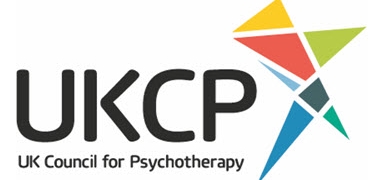Amber redish
LOCATION: Online
AVAILABILITY: Monday - Thursday morning, afternoon and evening
PRICE: £65 per session/ £85 per session for EMDR
SPECIALISMS:
Autism/Neurodivergence
Trauma/EMDR
Sexual abuse and rape
Parenting
Relationship difficulties and endings
Life changes and transitions
HIV and other chronic health issues
Anxiety and depression
Grief and loss
Training
Amber originally trained as a Person-Centred counsellor; graduating in 2005 and has a wealth of experience with a number of organisations, including West Sussex Association for the Blind, Terrence Higgins Trust, Brighton Women’s Centre and as a secondary school counsellor.
She has also worked for Mankind UK, working with men who have been sexually abused or raped. Since 2018 she has worked primarily as a counsellor for Autistic/neurodiverse people. She is also trained in EMDR.
Amber has additional training and experience in the Positive Parenting approach, systemic and mediation training, and has worked as a mediator with young people facing homelessness and couples divorcing, separating and dissolving civil partnerships.
Approach
Amber values individual difference, supporting clients to find their own path, connection and relationship. She strongly believes people can be empowered to find their own answers and works carefully and supportively with people weighed down by shame and low self-esteem.
Amber is ok to sit with people in chaos or stuckness and not afraid to be afraid, or to walk into a dark place. She supports people to safely navigate difficult emotional or traumatic histories, reconnect and add to their inner resources; developing self-compassion and resilience along the way.
It is important that people feel welcome and able to work at a pace that suits them. Amber provides a space of genuine empathic understanding and hopes clients find her a warm and approachable human being.
People are diverse in terms of what they want and need, so for talking based therapy I integrate Person Centred counselling; particularly close empathic, non-judgemental listening, with ideas from neuroscience, awareness of child development models and attachment styles and IFS (Internal Family Systems) to identify and integrate ‘parts’ of self. If people find useful, I can provide arts-based resources for creativity and expression in the therapy room.
Autism/ Neurodivergence
The majority of my work is with people diagnosed, undiagnosed or self-identifying with autistic spectrum conditions (ASC) /Asperger’s. This includes those preparing to seek assessment, recently diagnosed or with mixed feelings about their diagnosis. Please note, I cannot assess or diagnose people with autism or neurodivergent conditions.
Many autistic people have encountered prejudice, alienation, and isolation; often as a consequence of their individual sensory profile not being understood. They may have had poor experiences of educational, mental health or other services or felt pressure to conform to dominant social expectations; to an extent that is experienced as devaluing or traumatic.
I value and appreciate that for some autistic people there can be a close relationship and lifelong principle to speaking their personal authentic truth.
I come from a strengths-based position with regards to ASC/Asperger’s. From observations and experience, I notice client’s difficulties are often in response to systems and environments, since childhood, that provoke anxiety. These and other experiences can contribute to poor mental health.
Counselling offers an environment for calm personal reflection and connection to self and another; this can include learning new skills to manage symptoms that can be practiced outside of the session.
I have no agenda to ‘fix’ people or seek to ‘resolve’ autism.
Trauma/ EMDR
Amber also offers Eye Movement Desensitisation and Reprocessing (EMDR). This is a psychotherapy approach designed for working with distressing or traumatic memories and is recommended by NICE (National Institute for Clinical Excellence) for PTSD.
EMDR is a specific trauma treatment and as such, has its own assessment and processes; separate to talking therapy.
The theory behind EMDR is that many psychological difficulties are the result of distressing life experiences which have not been stored in memory properly and are said to be ‘unprocessed’ or ‘blocked’. These traumatic memories may need some help to become processed, and EMDR is one way to do this.
Some of the areas Amber has successfully supported clients with using EMDR are as follows: educational trauma, bullying, car accidents, sexual abuse and rape, early abandonment, Emetophobia (fear of being sick) and physical assault.
Sexual Abuse and Rape
Amber has worked extensively with clients who have experienced sexual abuse, rape and assault; including for Brighton Women’s Centre and Mankind UK, Hove. She has undergone further post graduate level training in ‘Applying neuroscience to therapy’ and is guided by Judith Herman’s ‘3 stages of trauma recovery’; which includes a focus on improving clients sense of safety and stabilisation at the beginning of the work.
Amber supports people to improve their understanding of how traumatic life events can impact on many areas of life and to help them manage the physical and emotional consequences of trauma. People report this helps them begin to live a life that feels healthier. When clients feel more stable and resourceful, they can choose to move into processing their trauma; including via EMDR, to better integrate their experiences into the story of their life.
Other information
Amber is a parent of three neurodiverse, adult children. Her personal experiences and perspectives on parenting and supporting parents can be helpful when working with clients.






